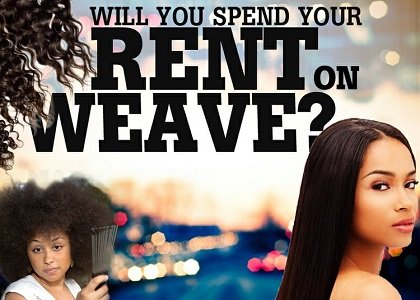(NNPA) — Special to the NNPA from The Miami Times
With the low-income levels of Black women living in Miami’s Upper East Side and the rise of the Black natural hair movement, some question the viability of the new, luxury hair extension boutique Indique that opened in the Miami Modern district last month.
Indique’s grand opening is April 11 and will have consultants available to talk about its high-end hair extensions.
Over the past five years, Black women in Miami have joined a national trend in wearing their hair free of chemicals and have reverted to afros, twists and braids.
But proponents of hair extensions say customers love the flexibility and versatility. For the Indique customer, it is a little more.
The Miami store will be the retailer’s 15th, where hair extensions are priced from $99 to $330 per four-ounce tube. To get a full head of hair extensions sewn in, a client would need to purchase two to three tubes, says Brooklyn, N.Y. boutique manager Laura Policastro.
“We tell our clients to consider it an investment. You might spend up to $800 on hair and you may say ‘That’s my rent’ but we guarantee that our hair lasts for up to one year if you take care of it,” said Policastro.
CHEAPER CHOICES
Sybil Jarrett has operated a hair salon in Miami Shores for the past 25 years and says the majority of her clients are Black women.
“My clients buy their weave from local beauty supply stores for between $10 and $20 a bundle,” said Jarrett, owner of D&D Unisex Salon, 8955 NE Sixth Ave. “Even though the more expensive brands last longer, a lot of my clients are looking for cheaper prices.”
She recalls her higher-end clients visiting Lugo’s Hair Center at 920 NW 119th St. where their hair color and texture would be matched and their custom extensions created on the spot. The location is now closed and these clients have resorted to ordering online.
While MiMo – the district between Northeast 50th and 77th streets – has experienced vast expansion since 2007, with a plethora of swanky restaurants, modern commercial buildings and a collection of renovated motels cropping up, the income levels of Black residents living nearby may not allow for such an investment.
But Indique is banking on these customers since, according to publicist for Indique’s Miami launch Tina-Gaye Bernard, Black women make up 95 percent of Indique’s clientele.
In the bordering Little River neighborhood, the median income is $19,344, according to Realtor.com. The average rental rate for a one-bedroom apartment within the store’s 33138 zip code ranges from $700 to $1,451. Lemon City, which houses Little Haiti, has an income lower than 94.3 percent of U.S. neighborhoods, according to NeighborhoodScout.com. Both Little River and Lemon City are heavily populated by Black residents.
Nevertheless, there are some affluent neighborhoods close to the district such as Belle Meade to the east, Bayside to the south and its stone’s throw neighbor to the north – Miami Shores. Miami Shores, which as of the 2010 U.S. Census had a Black population of 23.8 percent, has a median household income of $81,696.
Indique strategically chose to open a new location in the area because of Miami-Dade county’s large Black population and chose the MiMo district for its trendy feel.
